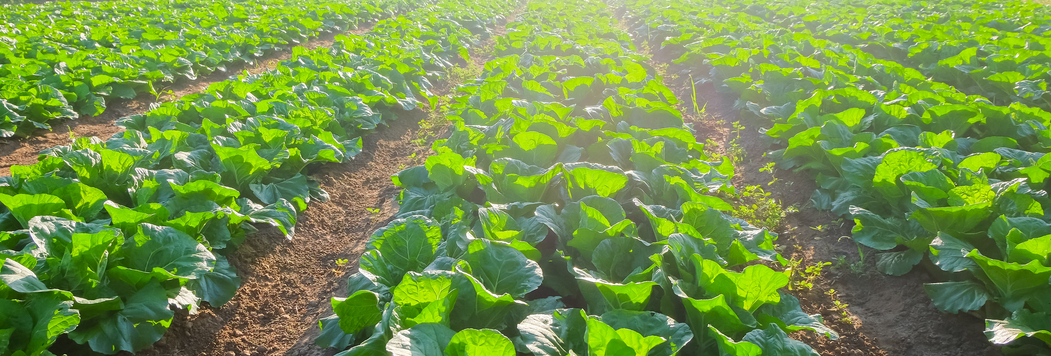
Author: Maha Khan Phillips
Building a more sustainable food system: What the Investment industry needs to know
FAIRR is an investor network focusing on ESG risks in the global food sector. Teni Ekundare, CFA, head of investor outreach, talks to Professional Investor about the ESG risks associated with intensive animal agriculture, about what steps the investment industry can take to support a global food transformation, and about where FAIRR is focusing its own efforts.
PI: Tell us about why the FAIRR Initiative was set up, and what you are setting out to achieve?
Ekundare: FAIRR’s mission is to support the transition to a more sustainable food system by bridging a vital knowledge gap for institutional investors. We provide much-needed research, data and tools, as well as access to collaborative engagements to further the stewardship efforts of our investor network.
FAIRR was established by Jeremy Coller in 2015 to address a blind spot in many investors’ analysis of their holdings in the animal protein industry. Several material ESG risks that exist within intensive animal agriculture were being overlooked: from labour to climate to water risks throughout supply chains. Jeremy Coller saw an opportunity to shine a spotlight on these factors, and how they affect investment portfolios now and in the years to come.
But it’s not all about risks. There are strategic opportunities available to companies addressing these issues too, such as the opportunities presented by a rapidly expanding alternative proteins industry. Through FAIRR’s market research and pioneering engagements, we help investors to assess how firms are responding to these risks and opportunities, and to engage with them to drive sustainable change.
PI: Exactly how much of an ESG risk is intensive animal agriculture for investors?
Ekundare: In a word – severe! Intensive animal agriculture is a catalyst for many of the most pressing ESG issues faced by people and planet today. For example, the industry is the leading cause of deforestation and loss of biodiversity, with up to 91% of deforestation in the Amazon Rainforest caused by animal agriculture; the largest consumer of antibiotics responsible for 70% of all antibiotics used globally; the number one user of fresh water, consuming 29% of total freshwater, both directly and indirectly; and accountable for 14.5% of global greenhouse gas emissions.
The ripple effects of these impacts reach beyond livestock farming, threatening pharmaceutical companies supplying drugs to farmers, working conditions at meat processors and even the product mix at consumer-facing retailers and restaurants. These substantial risks could be compounded by the potential for regulation such as carbon taxation, which FAIRR estimates could potentially cost the industry a staggering $11 billion.
The first step towards change is admitting there’s a problem. FAIRR helps inform institutional investors about these material issues via gold-standard ESG data, so they’re empowered to use their influence as responsible stewards of capital to encourage food companies to tackle risks proactively.
PI: How can the investment industry support the goal of a food system transformation?
Ekundare: FAIRR believes that investors can support the transformation of the food system through sustained engagement with companies.
One example of how engagement can achieve real world impact is FAIRR’s antibiotics engagement with 20 restaurant companies, which asked companies to limit the use of antibiotics in their supply chains in order to protect public health and encourage long-term value creation. At the start of the engagement, only one company had an antibiotics policy. By the final phase, all companies either had a public policy or had one under development.
Similarly, our Sustainable Proteins engagement is currently in its 5th phase, holding dialogues with food firms to explore protein diversification as a climate risk mitigation tool as well as a strategic growth opportunity. The engagement is now supported globally by investors managing $17.7 trillion in assets and we have seen great strides from the retailers and manufacturers involved.
One example is Tesco setting a time-bound commitment to increase sales of vegan products by 300% by 2025. Similarly, Unilever is targeting sales of €1 billion for its alternative protein products by 2027. These are hugely ambitious targets and FAIRR credits some of these goals to our work through the Sustainable Proteins engagement.
PI: What are some of the other risks in this area that investors face today?
Ekundare: Climate remains a key risk. However, the impact of COVID-19 on production line workers around the world has exposed the labour risks and poor working conditions at the heart of intensive animal agriculture. If unchecked, such standards could result in supply chain disruptions, reputational risks, fines, prosecutor investigations, and lawsuits from employees all proving financially material.
In order to encourage greater industry resilience, FAIRR recently launched a global collaborative engagement supported by investors managing over $11 trillion in assets, targeting seven global protein producers and the fundamental human capital risks in their global protein value chains. Our dialogues focus on risk mitigation in three key areas: health and safety, fair working conditions and worker representation.
Biodiversity also remains at the top of the investor agenda following the ground-breaking Dasgupta report this year. FAIRR continues to build on our years of research and engagement with the aquaculture industry on this theme, engaging global salmon producers on the biodiversity and climate risks in their feed supply chains.
PI: Do you produce any specific tools or analysis to support investors?
FAIRR’s flagship Coller FAIRR Protein Producer Index provides a valuable and rigorous overview of the animal protein industry and its sustainability performance. The Index equips investors with the tools to perform deep-dive analysis on a particular region, protein, or risk factor, from deforestation to animal welfare to water risk.
FAIRR has also developed the Climate Risk Tool 2.0, which is the world’s first TCFD-aligned climate risk analysis tool to assess the EBITDA risk to land-based animal protein producers in a 2-degree warmer world. The tool also assesses the mitigation pathways meat companies could take and provides a range of scenarios for how responses to climate impacts might play out financially.
We’re proud to be able to offer these pioneering tools to our investor members, and are pleased that they’re being used to form the basis of ESG-led decision making and productive company dialogues.
PI: Data you have put out suggests that the $47 billion animal health sector is fuelling irresponsible antimicrobial use in meat supply chains. How big a concern is this?
Ekundare: The misuse and overuse of antibiotics in animal protein supply chains is of huge concern.
Globally, around 70% of all antibiotics are consumed by livestock. Amongst those, many are used for growth promotion, or prophylactically to prevent sickness in animals kept in poor livestock conditions, rather than for the treatment of sick animals.
This is a leading cause of antimicrobial resistance (AMR) in humans – which refers to the emergence of superbugs that become resistant to antibiotics. Drug-resistant infections currently kill at least 700,000 people each year globally, and the World Bank estimates it will cost the global economy approximately $100 trillion by 2050. Therefore, this is a growing ESG risk at the heart of our food system which must be addressed urgently.
This year, AMR was a key item on the G7 agenda. Health and Finance Ministers committed to addressing “the silent pandemic of antimicrobial resistance”. For animal health companies with exposure to antimicrobials, this commitment will likely accelerate regulatory pressures and stakeholder scrutiny – including from investors, consumers and civil society.
Companies must adopt a comprehensive and strategic approach to addressing AMR; one that is consistent across markets and supports better supply chain transparency, manufacturing standards, stewardship, and innovation.
PI: What is one step asset managers and other industry stakeholders can take today to achieve change?
Ekundare: I think it all comes back to arming yourself with knowledge. Investors and stakeholders need the knowledge to be able to accurately analyse company disclosures, ask companies the right questions and assess company responses against the market.
Without greater awareness of the dangers ESG risks within animal agriculture pose, it will be impossible to implement the seismic shifts that are needed and empower investors, corporates and farmers to be part of that shift.
With that awareness comes responsibility too. With more conversations than ever about greenwashing, we should put in place metrics and parameters to track change and measure our progress towards a low-carbon economy.
Investors who aren’t carrying out their ESG-related due diligence are in danger of finding out that their portfolios carry more financial risk than they thought. That’s why the value of research and data that FAIRR offers to its members is immeasurable. We’re proud to be supporting investors on the road to a food system that’s fit for purpose, more sustainable and more secure.

Teni Ekundare, CFA, head of investor outreach, FAIRR Initiative